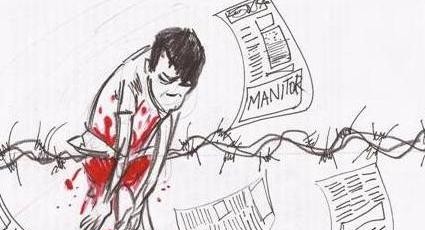15 Jul 2013 | Burma, Digital Freedom Reports
Real improvements have been made that strengthen digital freedom of expression in Burma from ending the blocking of Skype calls, to restrictions on internet cafe use being lifted and a reduction in SIM costs which will open up access to the internet and mobile telecoms. However, the legal framework remains largely unchanged during the transition to civilian government, in particular the draconian Electronic Transactions Act which contains many restrictive provisions on internet use. Built into the network infrastructure there are physical restraints on the internet in Burma with only one internet gateway for personal users allowing the possibility of deep packet inspection and web filtering. Upload speeds in Burma remain slow and the country’s mobile telephone and internet usage is one of the world’s lowest, which affects the dissemination of information. It is also alleged that activists’ email accounts have been hacked by the state. While in practice the internet and internet activists are considerably freer than a year ago, in theory they are still liable to lifetime prison sentences for the political use of email accounts. Without legal reform and technical reform, digital freedom of expression will remain chilled and mobile and internet use will continue to be highly limited.
(more…)
15 Jul 2013 | Burma
Burma has made significant advances during the transition period, with progress across all the categories of this report: politics & society, media freedom, artistic freedom and digital freedom. The situation in the country has significantly improved since the beginning of the transition.
Underpinning the increased freedom of expression are the significant political changes that have seen the release from house arrest of Aung San Suu Kyi and the election of NLD parliamentarians during the 2012 by-elections. The release of Aung San Suu Kyi, the regime’s most high-profile critic and political opponent, and other political prisoners was seen as a public signal to the Burmese people and civil society that the transition to civilian government was a possibility and that the government would tolerate dissent to greater latitude than in the past. Beyond this, a number of concrete advances have been made for freedom of expression including the abolition of the censorship boards, the end to the filtering of social networks and VOIP telecommunications, the return of daily newspapers and the greater latitude given to political expression, press comment and artistic expression by government officials.
(more…)
26 Mar 2012 | Azerbaijan, Azerbaijan News, Index Reports

Read the full report: Running Scared: Azerbaijan’s silenced voices
This report is a publication of the International Partnership Group for Azerbaijan (IPGA), a coalition of international organisations working to promote and protect freedom of expression in Azerbaijan. It examines the freedom of expression situation in Azerbaijan from the time of the IPGA’s joint mission to the country in September 2010 to March 2012.
The current state of freedom of expression in Azerbaijan is alarming, as the cycle of violence against journalists and impunity for their attackers continues; journalists, bloggers, human rights defenders and political and civic activists face increasing pressure, harassment and interference from the authorities; and many who express opinions critical of the authorities – whether through traditional media, online, or by taking to the streets in protest – find themselves imprisoned or otherwise targeted in retaliation.
Issues examined in this report include: impunity for violence against journalists; political use of the law to silence freedom of expression; restrictions on the right to freedom of peaceful assembly; pressure against NGOs, human rights defenders and lawyers; restrictions on the right to freedom of information; the situation of freedom of expression online; state control of the media; ethics, professionalism and self-regulation of the media; and Azerbaijan’s efforts to promote a positive image abroad despite the freedom of expression problems in the country.
Read the full report

